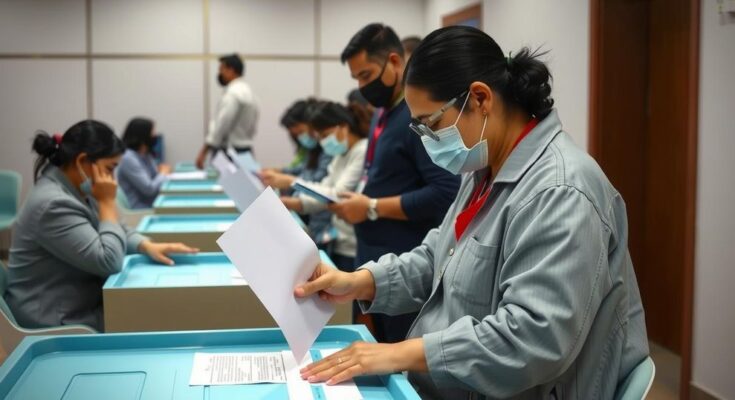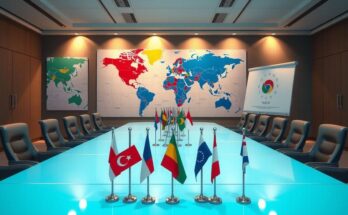Bolivia’s divisive popular vote for judicial positions reflects the struggles of balancing judicial independence against political pressures. As voter apathy and a lack of transparency pervade these elections, concerns mount regarding the legitimacy and integrity of the judiciary. This case study not only reflects Bolivia’s internal conflicts but may also influence regional electoral practices as similar reforms are contemplated in Mexico.
Bolivia is engaged in a controversial popular vote for judicial positions, presenting insights and implications for the broader region. Last held amid a climate of political tension, the elections have illuminated the profound challenges the country faces in maintaining a neutral judiciary amidst rising political influences. Voter apathy is prevalent, with many disillusioned citizens expressing uncertainty over candidates—a sentiment mirrored throughout Latin America, where judicial politicization poses significant threats to democratic structures.
In this year’s elections, which suffered multiple delays and concerns ranging from candidate transparency to political manipulation, only a partial slate of judges will be contested. The incumbent political struggles between President Luis Arce and former President Evo Morales continue to complicate judicial integrity, influencing public perception and turning ballots into a reflection of unresolved political rivalries rather than a true democratic exercise. With dire warnings from human rights advocates about the potential erosion of judicial independence, Bolivian elections serve as a case study against excessive political control of the judiciary, revealing the intricate balance between democracy and governance in Latin America.
The situation highlights the ongoing tension between varying political ideologies and external pressures, laying bare the challenges in aligning judicial representation with democratic principles. As elections approach in neighboring Mexico, officials are keenly observing Bolivia’s electoral landscape, questioning whether such systems can be effectively replicated without succumbing to similar pitfalls.
The outcome of these elections promises to affect not only Bolivia’s judicial framework but to resonate regionally as other nations contend with their own judicial reforms set against populist drives and bureaucratic accountability issues. Ultimately, Bolivia’s experience serves as an important reminder of the essential role an impartial judiciary plays in safeguarding democratic values and civil liberties, while also highlighting the precarious nature of such institutions when entangled in political strife.
Bolivia uniquely conducts elections for its highest judicial offices, a practice that has drawn both criticism and caution. Most notably, this structure was established to encourage accountability and democratize the judiciary; however, it has led to increased volatility and politicization, rendering judges as political entities rather than independent arbiters. The backdrop of former President Evo Morales’ influence has further complicated the judicial landscape, as he restructured the judiciary to favor his party’s interests, creating long-standing ramifications that haunt current electoral processes. Meanwhile, as neighboring countries consider adopting similar reforms for their judiciary in an environment stacked with archaic corruption, Bolivia’s situation offers crucial lessons on the consequences of intertwining politics with judicial independence. The impending Mexican overhaul, spearheaded by President Andrés Manuel López Obrador, mirrors Bolivia’s initiatives and is under close scrutiny by external observers.
The ongoing judicial elections in Bolivia encapsulate a tumultuous interplay between politics and the judiciary that could have implications for governance across Latin America. Amid fears of compromised integrity and earnest calls for reform, the case of Bolivia serves as a poignant exploration of democracy’s vulnerabilities when judicial power is intertwined with fluctuating political loyalties. As efforts to enhance electoral systems continue to unfold both in Bolivia and potentially in Mexico, it is critical to consider historical precedents and advocate for structures that prioritize judicial independence to fortify democratic integrity.
Original Source: apnews.com




